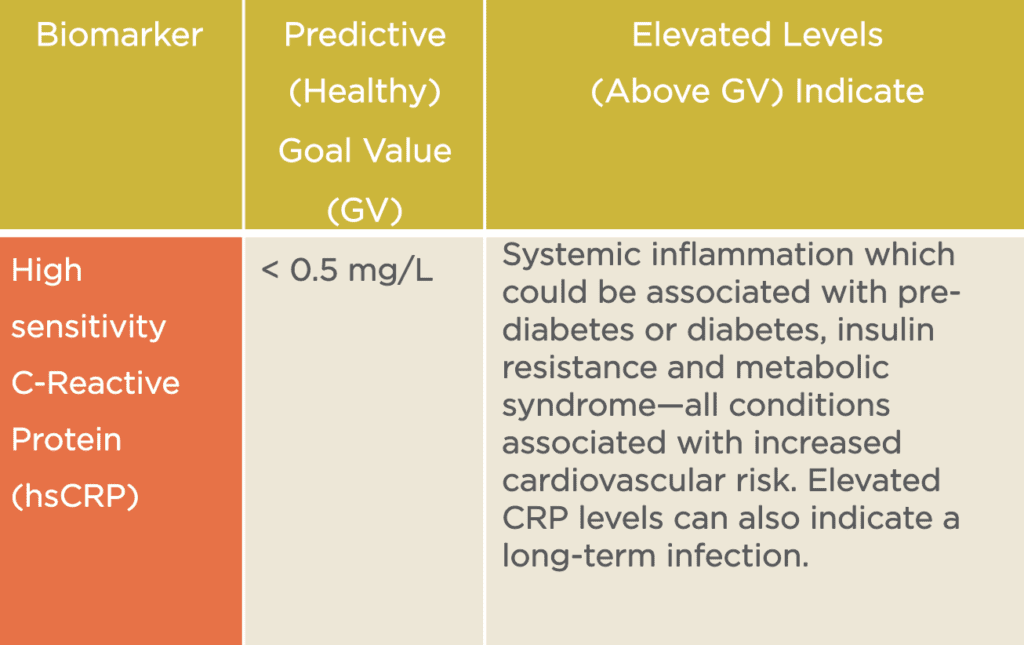C-Reactive Protein (CRP) is one of the first widely-available tests that offers a tangible marker of inflammation. The High-Sensitivity Creactive Protein (hsCRP) test measures very low amounts of CRP in the blood providing much more precise and accurate readings. When CRP is high, that is a definite indication of an inflammatory process present throughout the body. (Note: In some cases inflammation is present, yet CRP is not elevated.) CRP levels are considered elevated when greater than .5 mg/L.
When inflammation persists, that is almost always a feature of subclinical disease—a process smoldering below the surface that is not yet detectable, but in which tissue damage is occurring. High CRP levels are common in pre-diabetes and diabetes, reflecting insulin resistance and metabolic syndrome—all conditions associated with a high risk of cardiovascular disease.

Elevated CRP levels can also indicate a long-term infection. It is also an important marker of cardiovascular risk. As a predictive biomarker, hsCRP reflects the effectiveness and efficiency of immune defenses, which are responsible for neutralizing any sign of infection, repairing daily wear and tear, and identifying and eliminating cancerous cells.